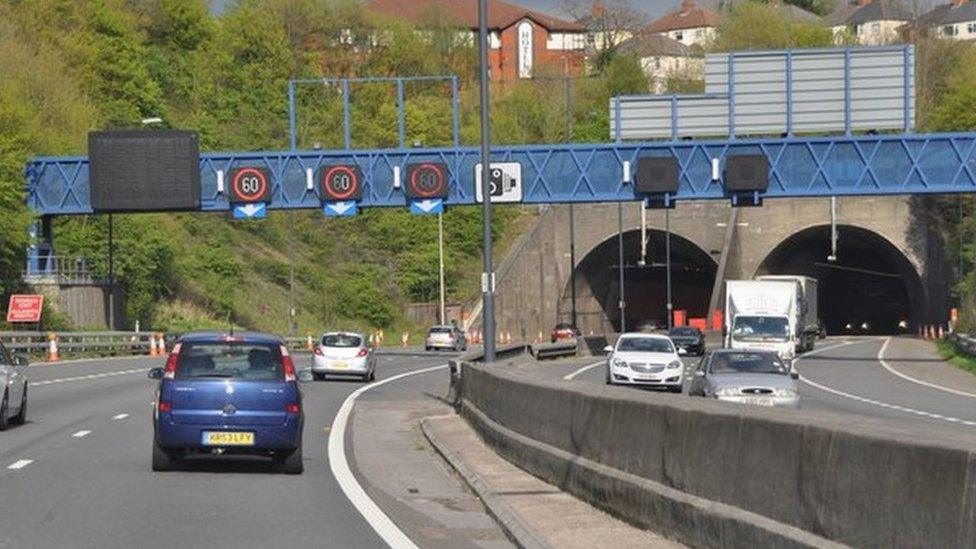M4: Decision due on road plan which predates One Direction
- Published

One Direction played to 10 million fans in the time the M4 relief road has been discussed
The members of One Direction have been born, topped the charts and taken a career break in the time Wales has spent considering whether it should go ahead and build its biggest infrastructure project.
While 1D are thought to have sold more than 50 million records worldwide, it has been 28 years since an M4 relief road was first considered and the plans are still on the drawing board.
The Welsh Government's £1.4bn solution to congestion on Wales' busiest stretch of motorway is one of its biggest decisions since devolution in 1999.
Environmentalists have called the proposal "government-sponsored ecocide", and it has divided politicians, but dozens of businesses and council leaders want the project to go ahead.
The proposal is to build a new 14 mile (23km) six-lane stretch of motorway south of Newport to bypass a perennial bottleneck.
The new road would pass through an area of the Gwent Levels environmentalists say is "Wales' own Amazon rainforest".
A 13-month public inquiry into the plans led to a 580-page report which has been pored over by ministers since November. The decision is expected on Tuesday.
This video reveals the possible route of the M4 relief road
Former Prime Minister David Cameron once described the Brynglas Tunnels as "the foot on the windpipe of the Welsh economy".
The snarl-ups at Newport's most infamous "landmark" are a twice-daily rush hour routine on south Wales' main road link with England.
Some businesses complain traffic can regularly "crawl at 20 mph" and economists claim the benefits outweigh construction costs "two to one".
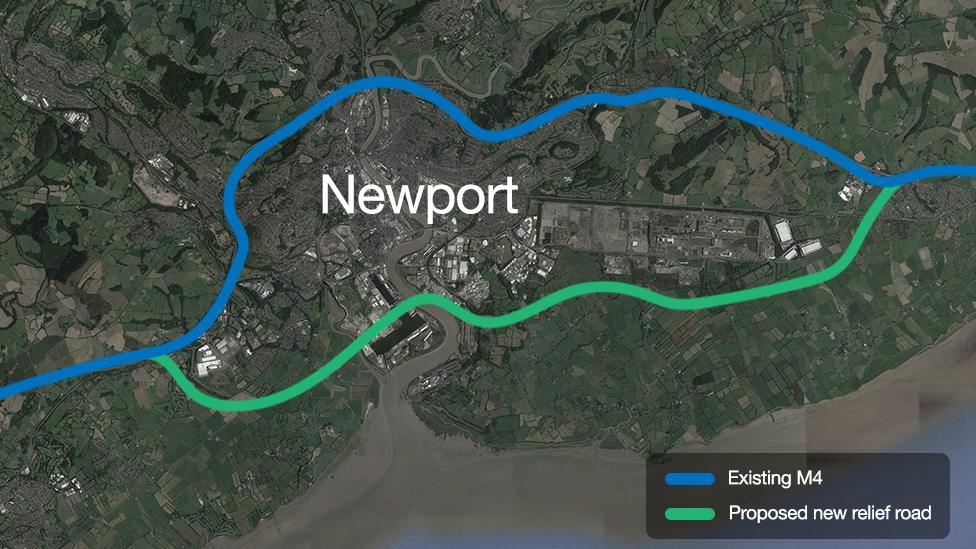
The proposed relief road would run south of Newport and the existing motorway
The first suggestion that a relief road was needed followed a traffic study commissioned, external in 1990.
That was followed in 1991 by the first proposal to build a new motorway south of Newport.
The existing road was built to cope with 54,000 vehicles a day, but traffic is now regularly double that, and the M4 at Newport is now the UK's busiest inner-city stretch of motorway apart from the M25 - with forecasts predicting further growth.
Police say the 300 annual accidents on the stretch between Magor and Castleton are above average compared to other motorways and a relief road is "necessary".
Destroying a jewel?
Conservationists say the new M4 would be a "direct attack on nature" as the route would "rupture" through several Sites of Special Scientific Interest (SSSIs) on the wildlife haven of the Gwent Levels.
The Welsh Government argued the new road south of Newport would take up just 2% of the SSSIs - and that millions would be spent on work to minimise the environmental impact.
However, Gwent Wildlife Trust has called these mitigation proposals "grossly inadequate" and said that "building a motorway to bypass a motorway is like loosening your belt to fight obesity."
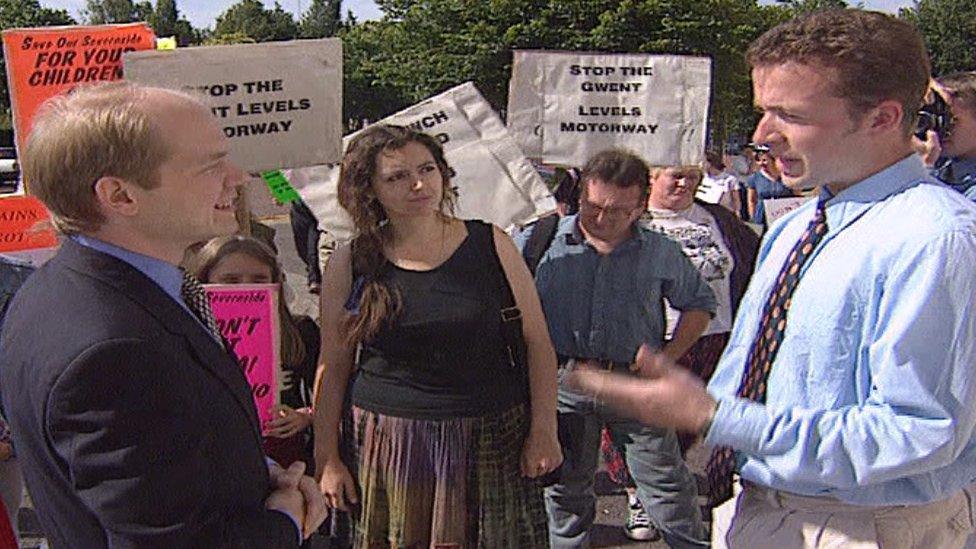
The then Welsh Secretary William Hague talks to protestors after revealing his preferred M4 relief road route in July 1995
Nature expert Iolo Williams accused the government of potentially "destroying" one of the "jewels in the crown of Wales" and the "green lung of Newport".
He wrote in a statement to the public inquiry the plans were "nothing short of a joke".
The RSPB say the route would cut through the first nesting site for common cranes in Wales in more than 400 years.
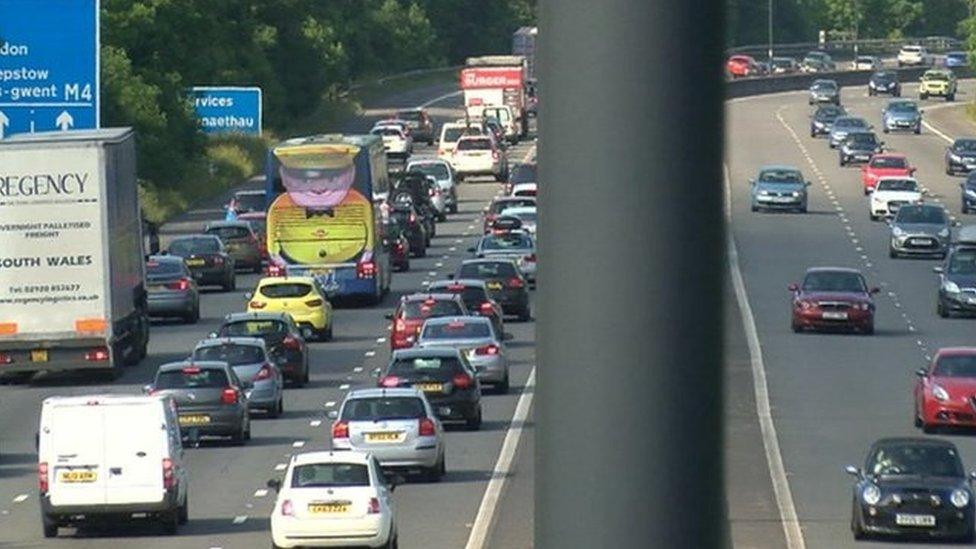
The M4 at Newport is Wales' busiest stretch of motorway with 100,000 vehicle movements daily
Future Generations Commissioner Sophie Howe is against the plan and has said ministers could be setting a "dangerous precedent" in the way they have interpreted the Wellbeing of Future Generations Act, external.
What's the timetable?
The politics of the M4 relief road are tricky - and it has proved divisive in the Senedd chamber.
That matters because if the Welsh Government presses ahead and it needs votes, it might be difficult to get enough AMs to back it.
Labour AMs are divided about it - former first minister Carwyn Jones was a big fan, but backbenchers like Jenny Rathbone not so much.
Mr Jones was due to make the decision, but that responsibility has fallen to his successor, Mark Drakeford.
He will not be drawn on his views on the road, but is thought to be a sceptic.
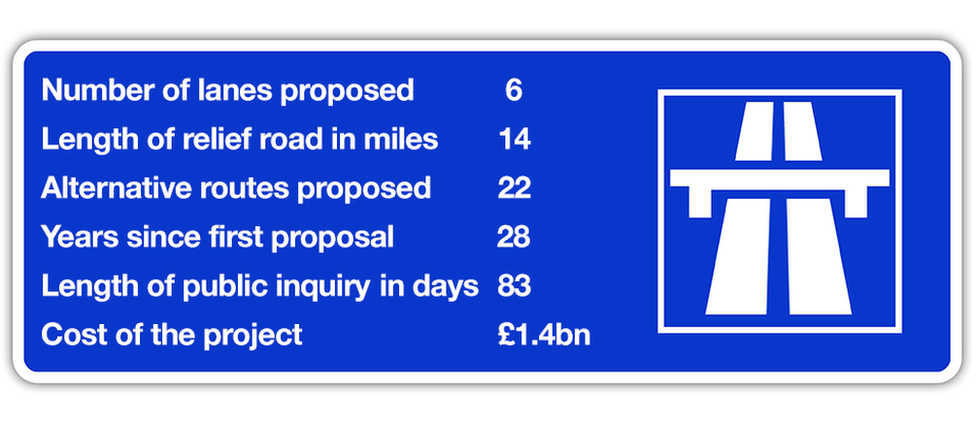
He also appointed long-standing opponent Lee Waters to be deputy transport minister - although he has said he will not be involved in the decision.
Beyond Labour, the Welsh Tories are believed to be split - but Welsh Secretary Alun Cairns is keen.
Plaid Cymru is a firm opponent and has called for a cheaper route. The Liberal Democrats - who have a minister in the government, Kirsty Williams - are dead against, too.
The newly formed Brexit Party group of four AMs is in favour though.
As One Direction might say, decisions like this aren't Little Things.

If you have any questions about the M4 relief road, use the form below to send them in:
If you are reading this page on the BBC News app, you will need to visit the mobile version of the BBC website to submit your question on this topic.
- Published28 November 2018
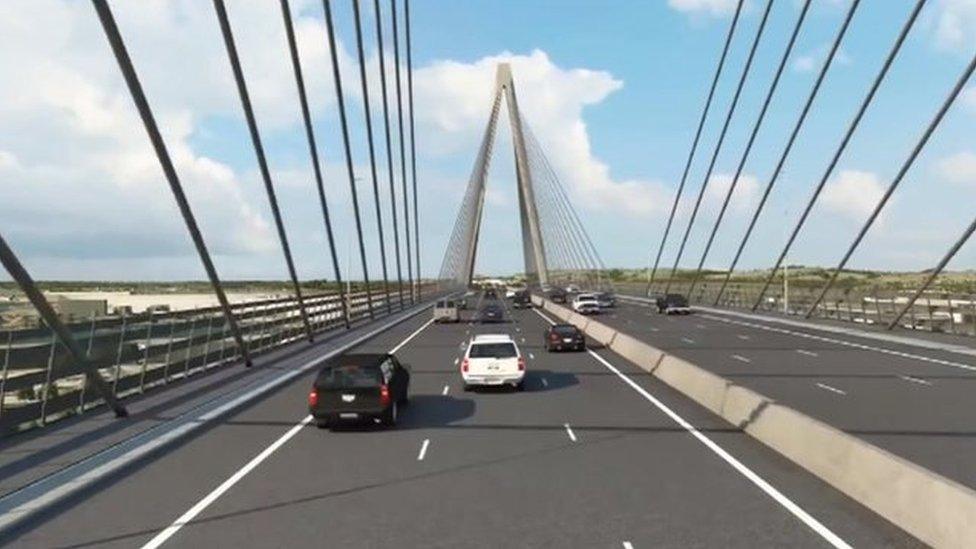
- Published25 November 2018
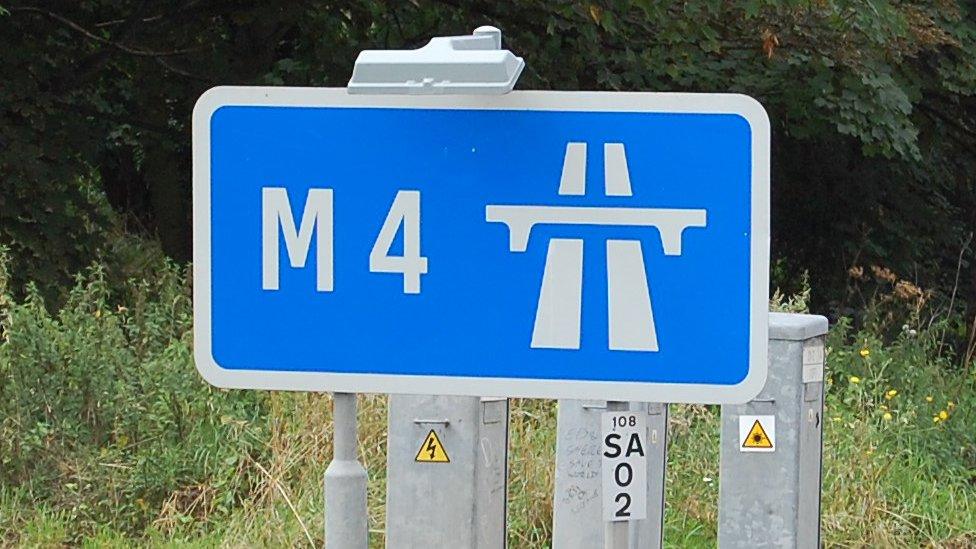
- Published12 September 2018

- Published7 June 2018

- Published27 February 2017

- Published3 May 2017
